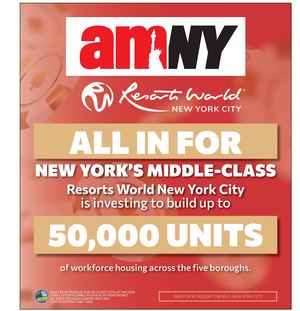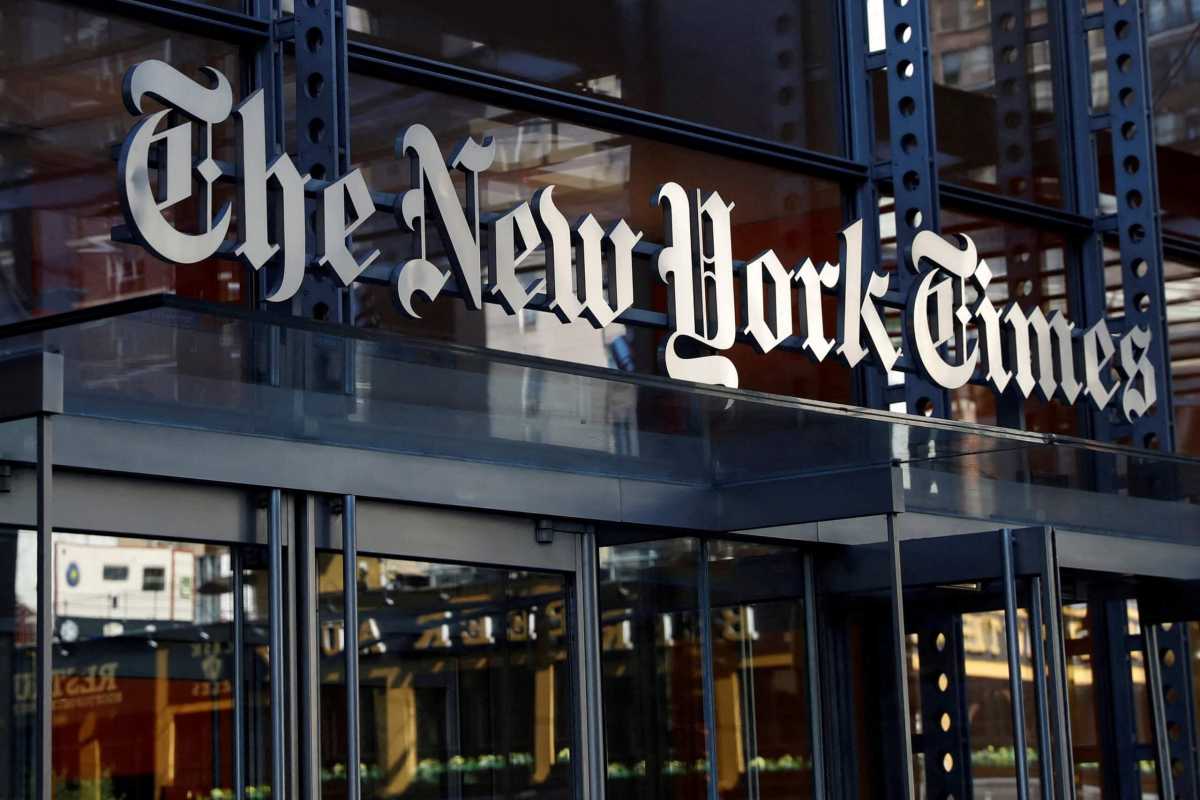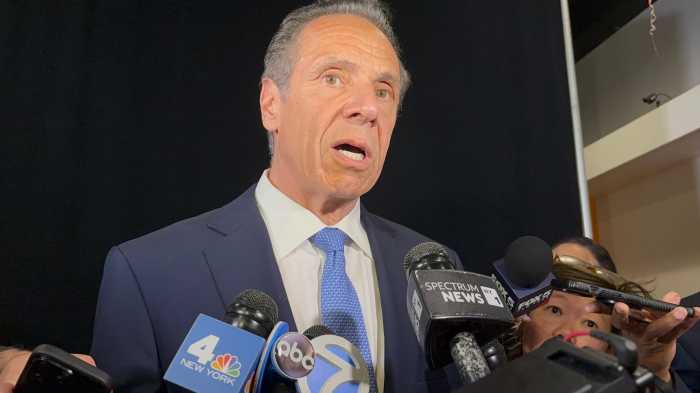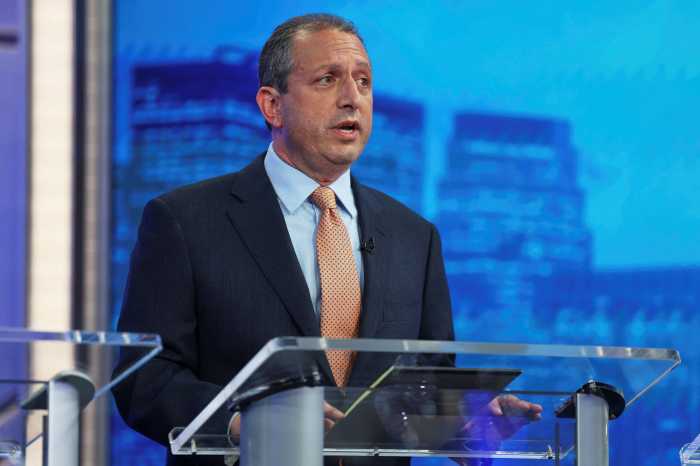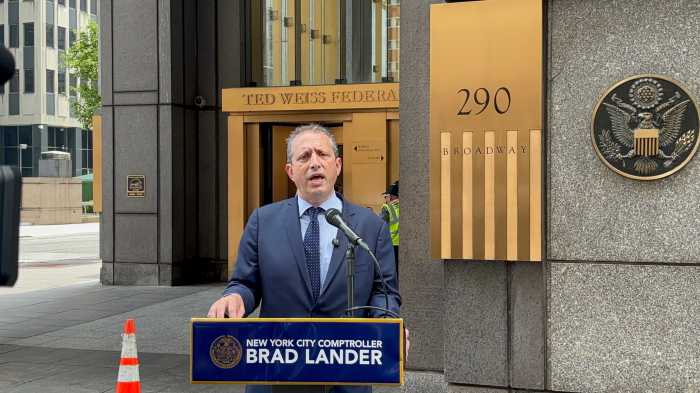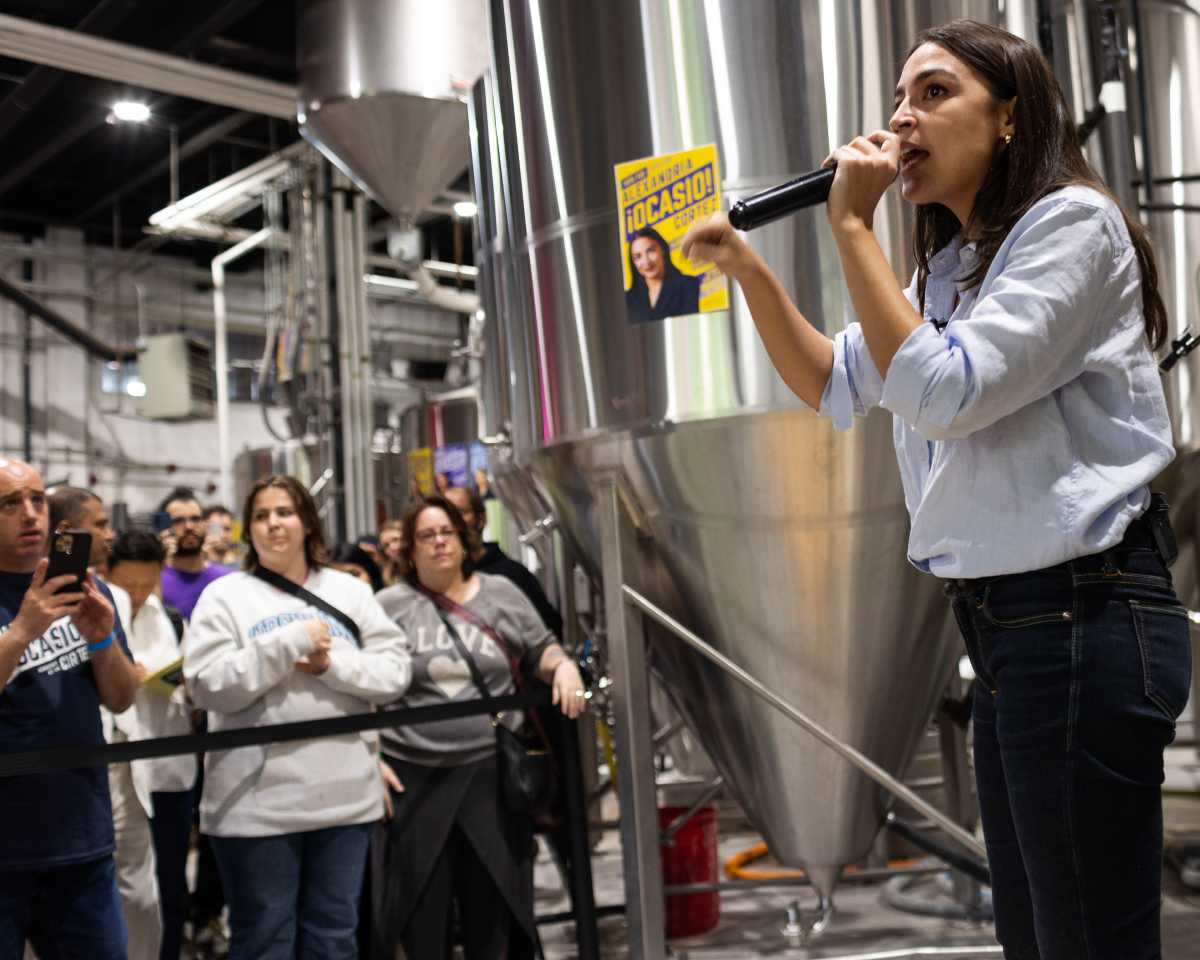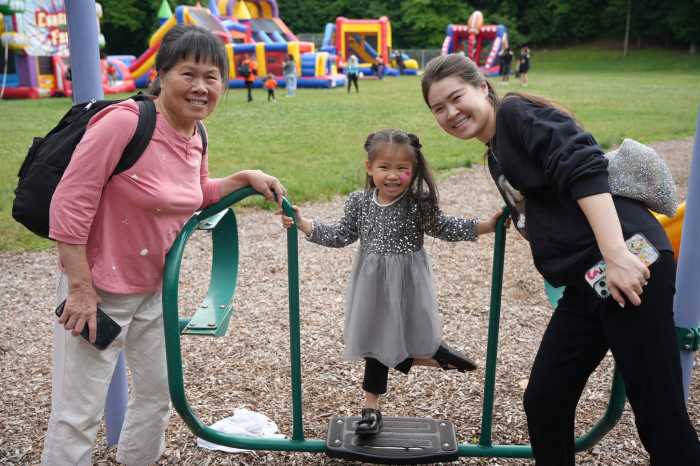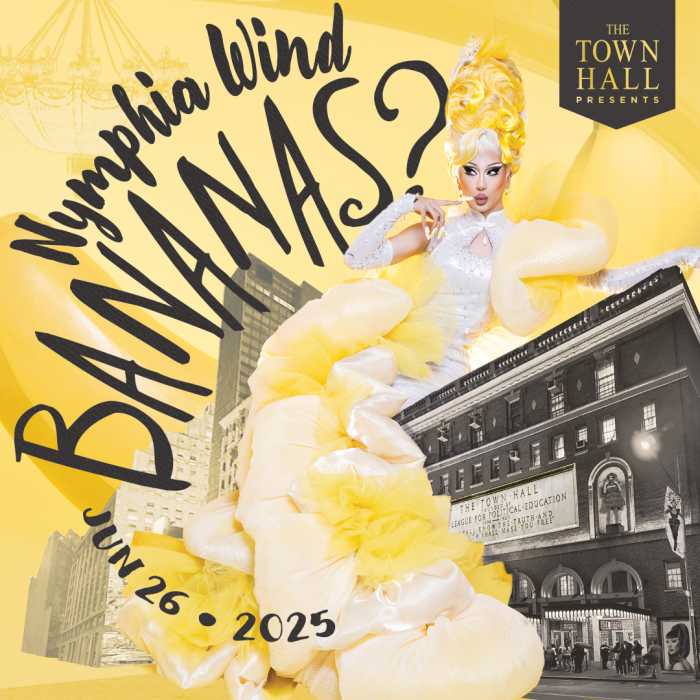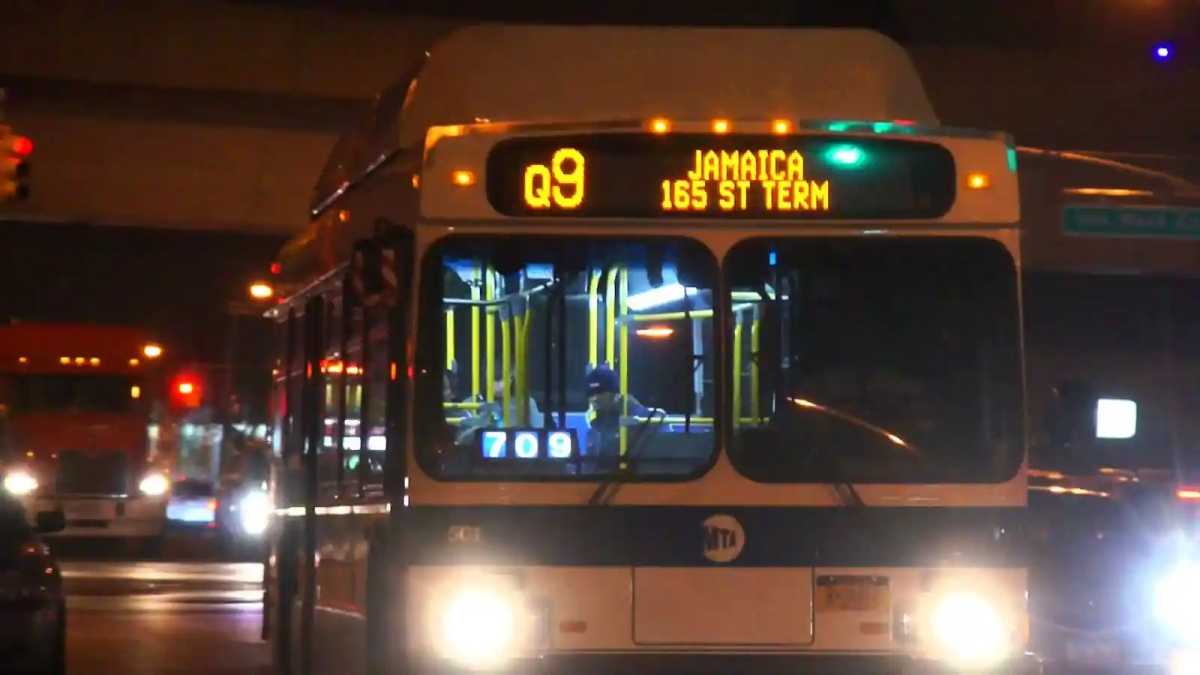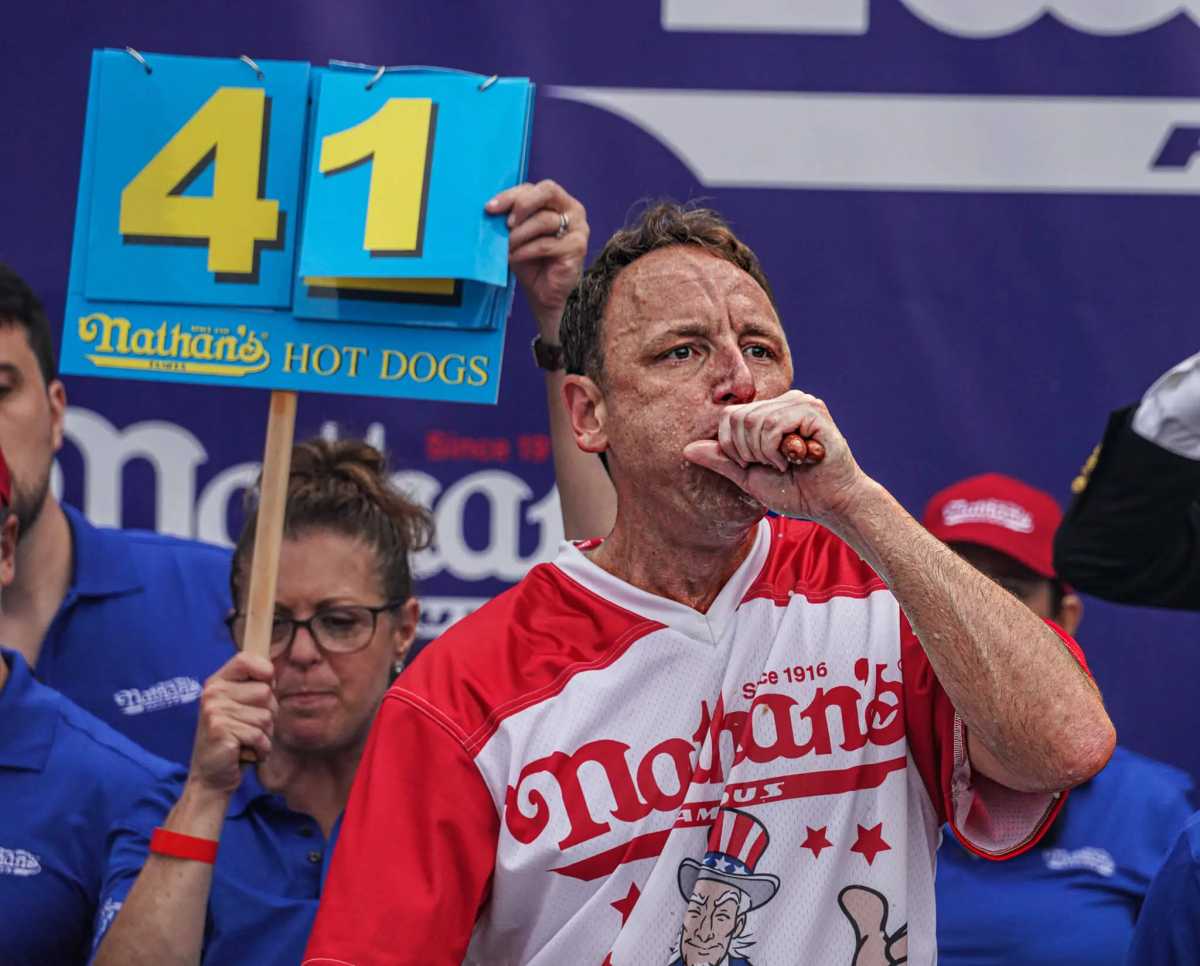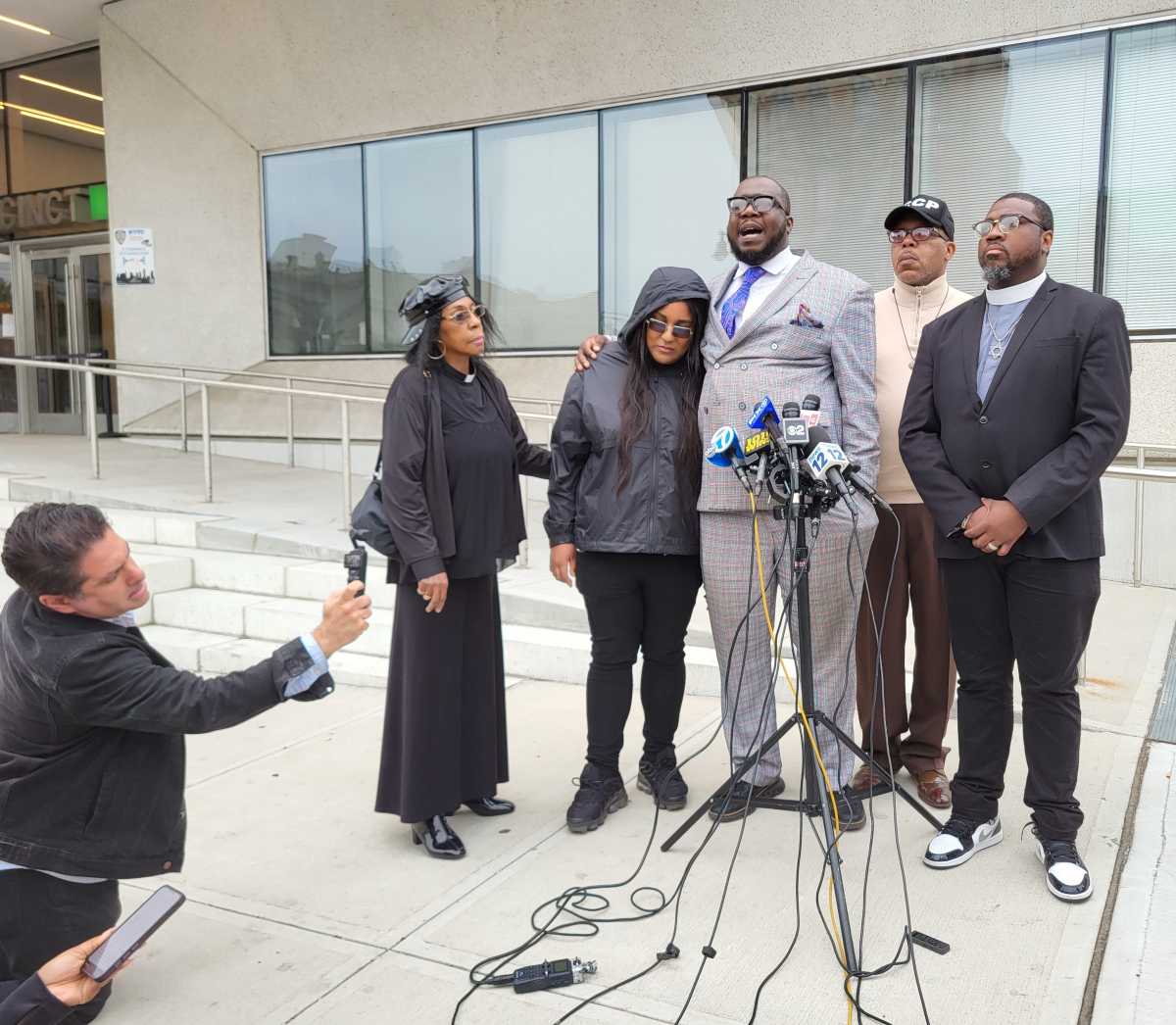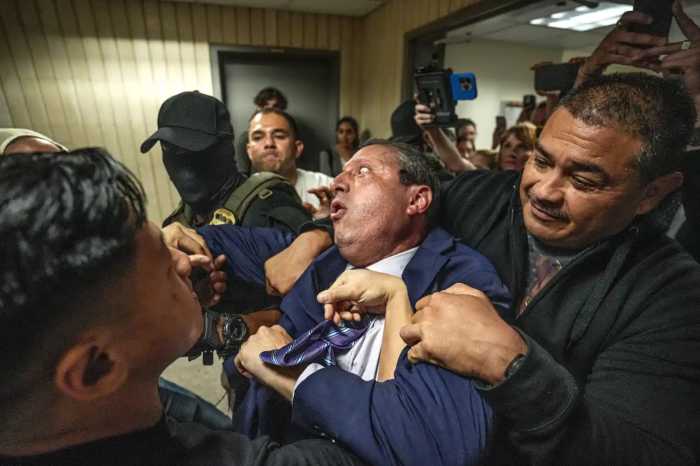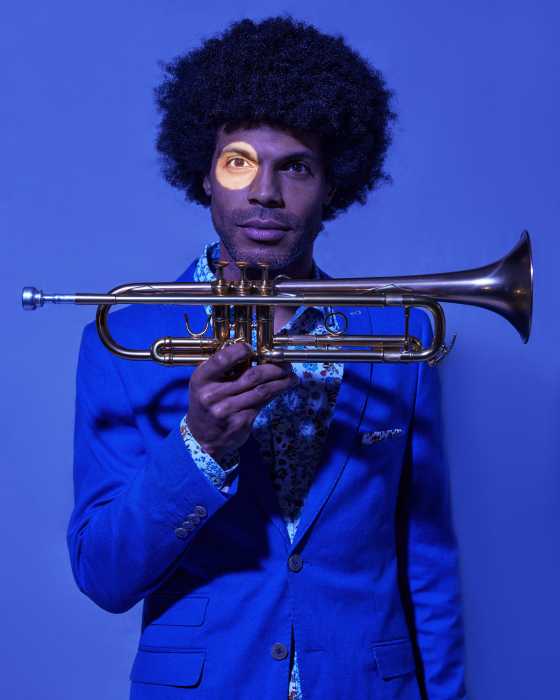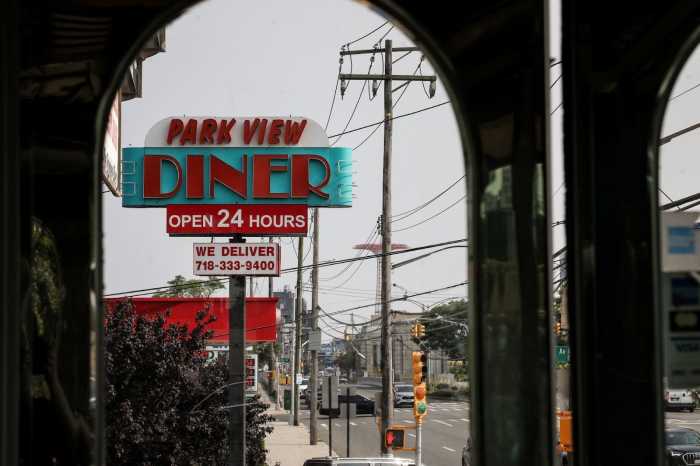In lieu of a traditional mayoral endorsement, the New York Times Editorial Board on Monday advised voters against placing Assemblyman Zohran Mamdani (D-Queens) on their ballot and raised “serious objections” to former Governor Andrew Cuomo’s “ethics and conduct.”
The board, which in 2021 called for Cuomo’s resignation as governor following a slew of sexual harassment allegations, expressed greater concern in Monday’s editorial with Mamdani than Cuomo, who resigned as governor in 2021.
“We do not believe that Mr. Mamdani deserves a spot on New Yorkers’ ballots,” the editorial reads. “His experience is too thin, and his agenda reads like a turbocharged version of Mr. de Blasio’s dismaying mayoralty. As for Mr. Cuomo, we have serious objections to his ethics and conduct, even if he would be better for New York’s future than Mr. Mamdani.”
The Times Editorial Board has endorsed a candidate for mayor in every election cycle since 1897. The Times’ opinion editor Kathleen Kingsbury announced in August 2024 that the paper of record was doing away with local endorsements going forward.
The editorial board’s endorsements, though not always in favor of the ultimate winner, have long been indicative of a significant bump in polls and support. In 2021, the board endorsed Kathryn Garcia in the democratic primary. Garcia lost to Adams, who currently occupies Gracie Mansion.
Monday’s editorial followed a project published last week by the Times’ opinion section featuring 15 prominent New Yorkers’ opinions on the race. Comptroller Brad Lander came out on top, with seven of 15 panelists selecting Lander as their top pick for mayor. Cuomo and Mamdani, who are leading the pack by a wide margin in most polls, came in far behind tied for second, with two panelists endorsing each.
“Eleven candidates are competing for the Democratic nomination, and many New Yorkers are understandably disappointed by the field. It lacks any candidate who seems likely to be the city’s next great mayor,” Monday’s editorial reads. “For that reason, we are not endorsing a candidate.”
The board wrote that though Mamdani “offers the kind of fresh political style for which many people are hungry during the angry era of President Trump,” the 33-year-old “is running on an agenda uniquely unsuited to the city’s challenges.”
“He is a democratic socialist who too often ignores the unavoidable trade-offs of governance. He favors rent freezes that could restrict housing supply and make it harder for younger New Yorkers and new arrivals to afford housing. He wants the government to operate grocery stores, as if customer service and retail sales were strengths of the public sector. He minimizes the importance of policing,” the editorial reads.
The non-endorsement echoed arguments that Cuomo and other opponents of Mamdani have made about the assemblymember’s relative lack of managerial experience, his comparatively thin policy record, and his ambitious hopes for housing and cost of living that have been criticized as unrealistic.
Though the board did not endorse Cuomo and once more raised its concern from 2021 that “his treatment of women was part of a larger pattern of bullying, self-serving behavior,” it wrote that he is the candidate in the race with the strongest policy record.
Spokespeople for Mamdani and Cuomo did not immediately respond to requests for comment about Monday’s editorial.
The board referenced the opinion section’s recent panel project, naming Lander, former financial executive Whitney Tilson, City Council Speaker Adrienne Adams, former Comptroller Scott Stringer, and State Senator Zellnor Myrie (D-Brooklyn) as the panel’s chosen alternatives for voters dismayed by Mamdani and Cuomo. Lander and Mamdani cross-endorsed each other last week, each urging voters to rank themself first and the other second.
“We see arguments for ranking several candidates at the top of the ballot, including Mr. Lander for more progressive voters and Mr. Tilson for more moderate voters,” Monday’s editorial reads. “Although Mr. Cuomo and Mr. Mamdani have dominated the polls, another candidate could still emerge as the Election Day winner.”
New York City uses ranked-choice voting in local elections, meaning voters can rank up to five candidates on their ballot, allowing their vote to go to their second, third, fourth, or fifth choice if their most preferred candidate or candidates do not gather enough support. The Though the board advised against Mamdani and warned about what a Cuomo mayoralty might bring, it noted that leaving both candidates off of the ballot “would be tantamount to expressing no preference between the two.”
“It is similar to voting for neither major-party candidate in a traditional election,” the editorial reads. “If the polls are correct and the race is between Mr. Cuomo and Mr. Mamdani, the thing that matters most on a ballot will be the relative positions of those two candidates.”
The board noted that Mayor Eric Adams’ “evident corruption and sloppy management style” signal that he “does not deserve re-election.” Adams is running for re-election as an Independent. As for the Republican primary, the board mentioned the main candidate Curtis Sliwa, a radio host, but brushed his candidacy off for lack of any government experience.
“Ultimately, we will be rooting for the success of whoever becomes New York’s next mayor,” the board wrote. “We will also be rooting for a stronger field in the 2029 election.”
Early voting in the Democratic mayoral primary began on Saturday and the primary election will take place on June 24.
